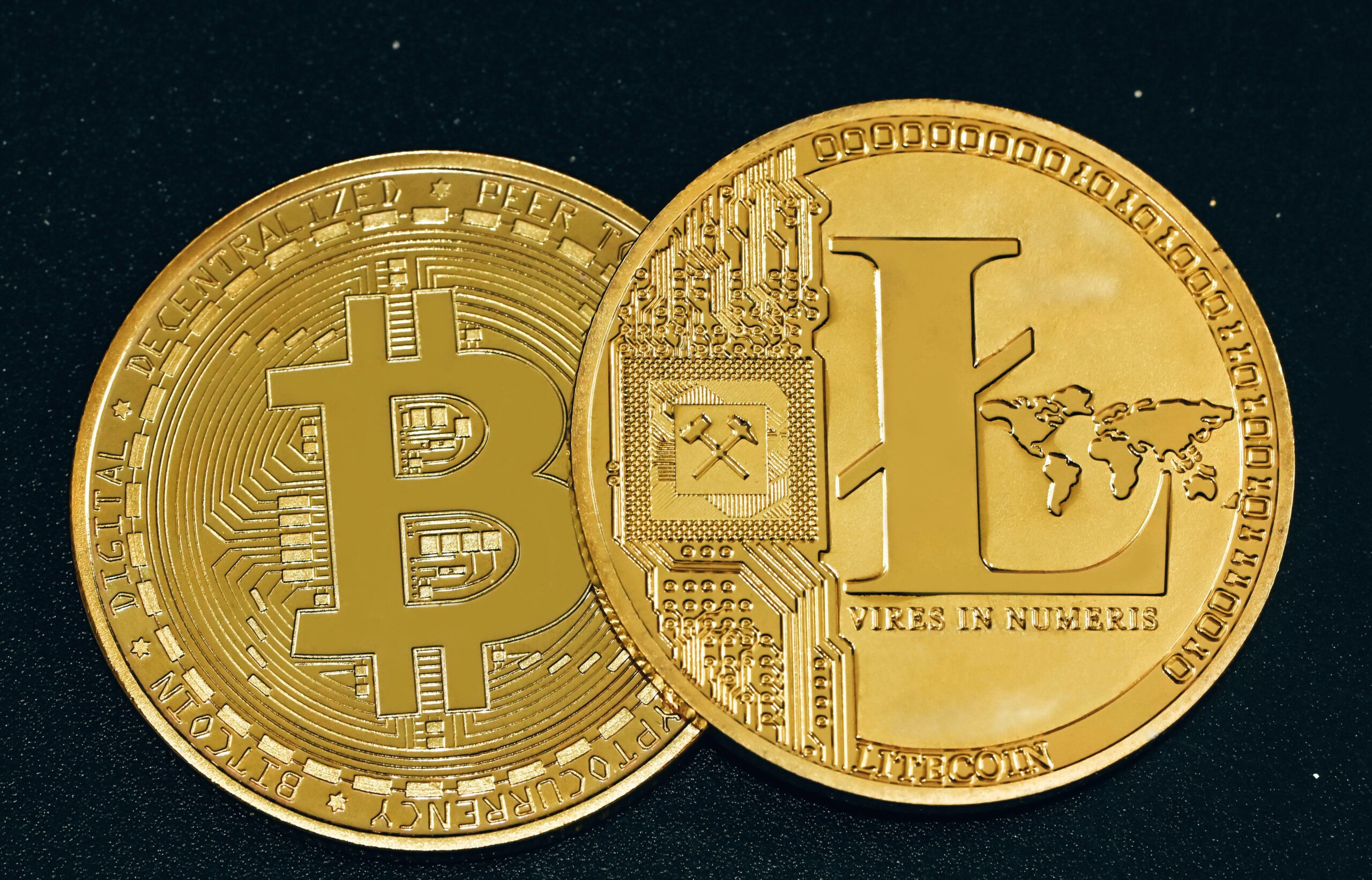Are you interested in the world of blockchain and its potential applications? Look no further! In this article, we will explore the exciting realm of education and blockchain-focused courses. From understanding the basics of blockchain technology to exploring its impact on the education industry, these courses offer a unique opportunity to enhance your knowledge and skills in this rapidly growing field. Whether you’re a student, educator, or simply curious about the intersection of these two domains, join us as we embark on a journey to uncover the fascinating world of education and blockchain-focused courses.

1. Understanding Blockchain Technology
1.1 What is Blockchain?
Blockchain is a revolutionary technology that has gained significant attention in recent years. Simply put, it is a decentralized and distributed digital ledger that records transactions across multiple computers. Each transaction is securely linked to the previous one, creating a chain of blocks. The data stored on the blockchain is transparent, immutable, and resistant to manipulation, making it highly secure and trustworthy.
1.2 How Does Blockchain Work?
Blockchain operates based on the concept of consensus. Rather than relying on a central authority, such as a bank or government, to validate transactions, blockchain utilizes a network of participants known as nodes. These nodes work together to validate and record transactions, ensuring their accuracy and integrity.
When a new transaction occurs, it is verified by multiple nodes through complex mathematical algorithms. Once validated, the transaction is grouped with others to form a new block. This block is then added to the existing chain of blocks, creating a permanent record of the transaction.
1.3 Blockchain Applications in Education
Blockchain has the potential to revolutionize the education sector in various ways. It can be leveraged to securely store and verify academic credentials, ensuring their authenticity and eliminating the risk of fraud. Additionally, blockchain can enable the creation of decentralized learning platforms, where students can access educational content and certifications from anywhere in the world. By leveraging blockchain technology, educational institutions can enhance transparency, accountability, and efficiency in their operations.
2. Importance of Education in Blockchain
2.1 Why Education in Blockchain is Essential
Education in blockchain is essential due to its increasing prominence across industries. As blockchain technology continues to disrupt various sectors, companies are seeking professionals with a deep understanding of its intricacies. By acquiring knowledge and skills in blockchain, you position yourself as a valuable asset in the job market, opening up exciting career opportunities in sectors such as finance, healthcare, logistics, and more.
2.2 Benefits of Blockchain Education
Education in blockchain offers numerous benefits. Firstly, it provides you with a comprehensive understanding of the underlying principles and concepts of blockchain, allowing you to grasp its potential applications and limitations. Secondly, blockchain education equips you with the necessary skills to navigate the technical aspects of blockchain technologies, such as smart contracts and decentralized applications. Lastly, blockchain education enhances your critical thinking, problem-solving, and teamwork abilities, which are highly sought-after in today’s digital economy.
2.3 Skills and Knowledge Required
To excel in the field of blockchain, it is crucial to possess a diverse range of skills and knowledge. Firstly, a solid foundation in computer science, mathematics, and cryptography is vital to comprehend the complex algorithms and mechanisms behind blockchain. Additionally, familiarity with programming languages, such as Solidity and Python, is essential for developing blockchain applications and smart contracts. Furthermore, a strong understanding of economics, finance, and regulations can help you navigate the implications of blockchain in various industries.
3. Trends in Blockchain Education
3.1 Growth of Blockchain Education
The demand for blockchain education has witnessed exponential growth in recent years. Recognizing the need to meet this demand, educational institutions, both traditional and online, have started offering blockchain-focused courses and programs. The availability of such educational opportunities allows individuals from diverse backgrounds to learn about blockchain and its applications.
3.2 Rise of Online Blockchain Courses
Online blockchain courses have gained significant popularity due to their flexibility and accessibility. These courses provide individuals with the opportunity to learn at their own pace and schedule, regardless of their geographical location. Platforms like Coursera, edX, and Udemy offer a wide array of blockchain courses, ranging from introductory to advanced levels, catering to the needs and interests of learners worldwide.
3.3 Collaboration with Universities and Institutions
To ensure the quality and relevance of blockchain education, universities and educational institutions are partnering with industry experts and blockchain organizations. These collaborations enable the development of curriculum and certification programs that align with industry requirements. By bridging the gap between academia and industry, students are better prepared for real-world blockchain applications and have enhanced employability prospects.
4. Popular Blockchain Certification Programs
4.1 Certified Blockchain Developer (CBD)
The Certified Blockchain Developer (CBD) certification program is designed for individuals seeking to demonstrate their technical proficiency in blockchain development. This program covers topics such as blockchain architecture, programming smart contracts, and decentralized application development. The CBD certification is recognized by industry-leading organizations and can significantly enhance your credibility as a blockchain developer.
4.2 Certified Blockchain Expert (CBE)
The Certified Blockchain Expert (CBE) certification program caters to individuals looking to develop a comprehensive understanding of blockchain technology and its applications. This program covers areas such as blockchain fundamentals, cryptography, blockchain security, and token economics. The CBE certification validates your expertise in blockchain and positions you as a subject matter expert in the field.
4.3 Certified Blockchain Architect (CBA)
The Certified Blockchain Architect (CBA) certification program focuses on equipping individuals with the skills and knowledge required to design and implement blockchain solutions. This program covers topics such as distributed ledger technology, consensus algorithms, and blockchain scalability. The CBA certification demonstrates your ability to architect robust and scalable blockchain solutions, making you a valuable asset to organizations exploring blockchain adoption.

5. Blockchain Courses for Different Skill Levels
5.1 Beginner Level Blockchain Courses
For individuals new to blockchain, beginner-level courses offer a comprehensive introduction to the technology. These courses cover topics such as blockchain basics, decentralized systems, and blockchain use cases. They provide a solid foundation for understanding the core principles of blockchain and its potential applications across industries.
5.2 Intermediate Level Blockchain Courses
Intermediate-level blockchain courses are ideal for individuals with a basic understanding of blockchain who wish to delve deeper into its technical aspects. These courses focus on topics such as smart contracts, blockchain development frameworks, and consensus algorithms. By completing intermediate-level courses, you gain the necessary knowledge to start developing blockchain applications.
5.3 Advanced Level Blockchain Courses
Advanced-level blockchain courses cater to individuals with substantial experience and knowledge in blockchain. These courses explore advanced topics such as blockchain scalability, privacy-enhancing technologies, and blockchain interoperability. By undertaking advanced-level courses, you position yourself as a blockchain expert with a deep understanding of the technology’s complexities and its impact on various industries.
6. Examples of Prominent Blockchain Courses
6.1 Blockchain Basics by Coursera
Coursera offers a popular course called “Blockchain Basics” that provides a comprehensive introduction to blockchain technology. The course covers various topics, including blockchain architecture, decentralized consensus, and blockchain security. Through a combination of lectures, case studies, and hands-on projects, learners gain a solid understanding of blockchain fundamentals.
6.2 Blockchain Fundamentals by edX
edX offers a course titled “Blockchain Fundamentals” that explores the technical aspects of blockchain technology. The course covers topics such as blockchain architecture, smart contracts, and decentralized applications. Learners are also exposed to real-world blockchain use cases and have the opportunity to develop their own blockchain project.
6.3 Blockchain for Business by Udemy
Udemy offers a course called “Blockchain for Business” that focuses on the practical applications of blockchain in various industries. The course covers topics such as blockchain implementation strategies, enterprise blockchain platforms, and tokenization. By completing this course, learners gain insights into how blockchain can transform business processes and create new opportunities.

7. Integration of Blockchain in Traditional Education Systems
7.1 Use Cases of Blockchain in Education
Blockchain has the potential to revolutionize the education sector through various use cases. One such use case is the secure and tamper-proof storage of academic credentials. By storing educational certificates and degrees on the blockchain, students and employers can easily verify the authenticity of these credentials, eliminating the need for time-consuming manual verification processes.
7.2 Improving Credential Verification and Issuance
Blockchain can streamline the process of credential verification and issuance. With blockchain, educational institutions can issue digital certificates that are cryptographically secure and tamper-proof. These certificates can be easily shared and verified by employers and academic institutions, reducing fraudulent activities and enhancing the overall credibility of the education system.
7.3 Enhancing Learning Management Systems
Blockchain can also enhance learning management systems by enabling secure and transparent storage of learning records. This allows students to maintain a lifelong, immutable record of their achievements, courses completed, and skills acquired. Such records can be easily shared with potential employers or educational institutions, providing a comprehensive overview of an individual’s educational journey.
8. Challenges and Limitations of Blockchain Education
8.1 Lack of Standardization
One of the key challenges in blockchain education is the lack of standardization in curriculum and certification programs. As blockchain technology is rapidly evolving, there is a need for industry-wide consensus on the core knowledge and skills that should be imparted through educational programs. Standardization would ensure consistency and quality in blockchain education, making it easier for employers to assess the proficiency of individuals.
8.2 Scalability Issues
Blockchain scalability remains a significant challenge within the education sector. As blockchain-based systems handle a large volume of transactions and data, scalability becomes crucial to ensure smooth operations. Currently, blockchain technology faces limitations in terms of transaction speed and network capacity. Overcoming these scalability issues is vital to ensure the seamless integration of blockchain in traditional education systems.
8.3 Novelty and Adaptability
The novelty of blockchain technology poses a challenge in terms of adoption and acceptance within traditional education systems. Skepticism and resistance to change may hinder the integration of blockchain in educational institutions. Additionally, as blockchain technology continues to evolve rapidly, educational programs need to remain adaptable and up-to-date to equip students with the latest knowledge and skills.
9. Future of Education and Blockchain
9.1 Rising Demand for Blockchain Skills
The future of education is increasingly intertwined with blockchain technology. As the adoption of blockchain expands across industries, the demand for blockchain professionals will continue to rise. Individuals with a strong understanding of blockchain technology and its applications will be sought after by organizations looking to leverage its potential. By acquiring blockchain skills, you position yourself for success in the future job market.
9.2 Blockchain’s Impact on Education Sector
Blockchain has the potential to transform the education sector by enhancing transparency, eliminating fraud, and streamlining processes. The secure and decentralized nature of blockchain ensures the integrity of academic credentials and allows for seamless verification and sharing of educational records. Additionally, blockchain can enable the creation of decentralized learning platforms, providing access to quality education globally.
9.3 Innovations and Potential Developments
The future of education and blockchain holds exciting opportunities for innovation. As blockchain technology continues to evolve, new applications and use cases will emerge within the education sector. Innovations such as blockchain-powered decentralized learning platforms, blockchain-based micro-credentialing systems, and secure digital identity solutions have the potential to shape the future of education.
10. Conclusion
In conclusion, education in blockchain is essential in today’s digital age. It equips individuals with the knowledge and skills required to navigate the complexities of blockchain technology and its applications. With the growing demand for blockchain professionals, pursuing blockchain education can open up exciting career opportunities across industries. Additionally, the integration of blockchain in traditional education systems holds immense potential for enhancing transparency, credibility, and efficiency. By embracing blockchain education, you position yourself at the forefront of a technological revolution that is set to reshape the future of education.

